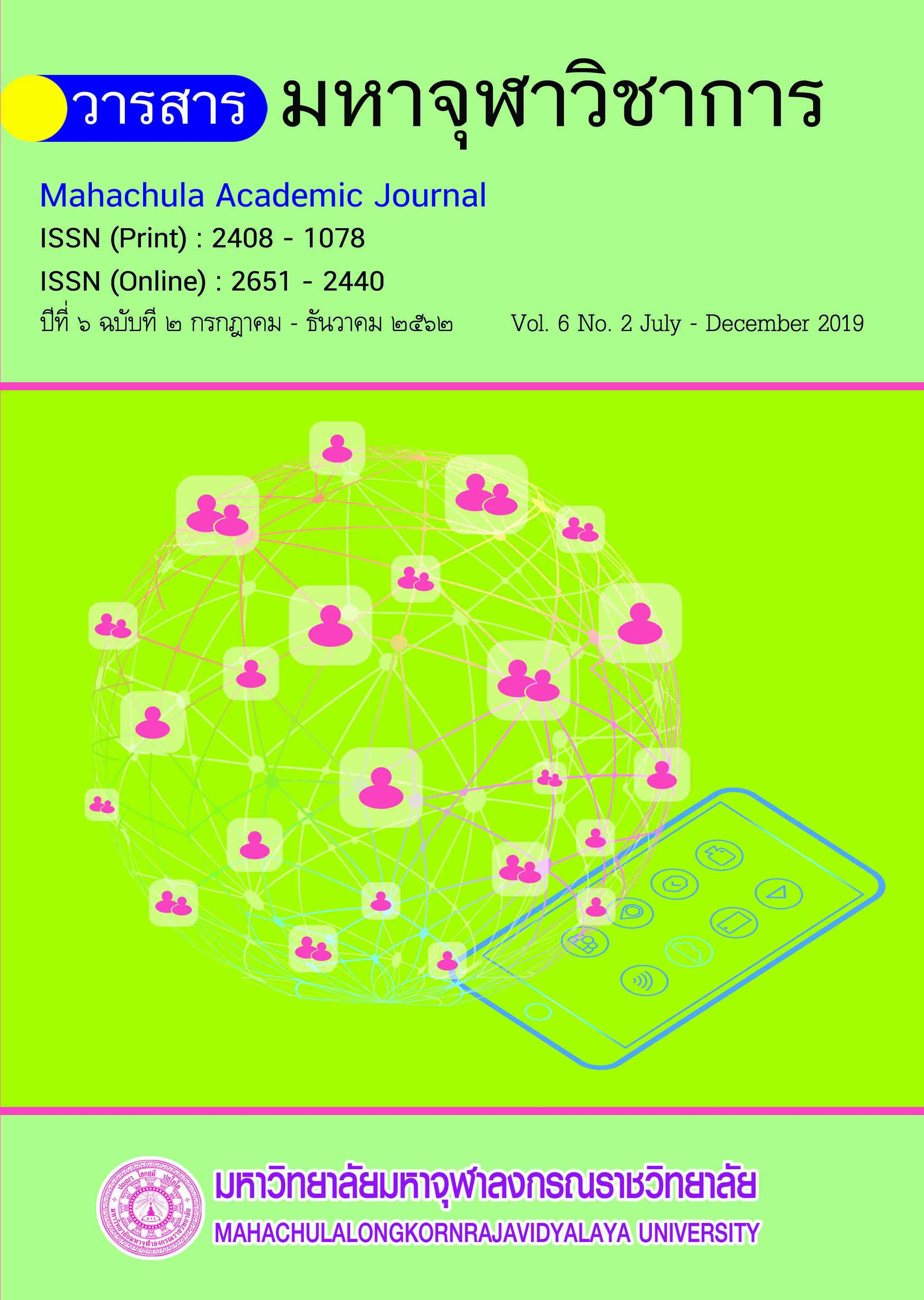The Buddhist Peaceful culture of the Tai Yai Ethnic Group (SHAN STATE) in Peaceful Coexistence
Main Article Content
Abstract
Study and Analyze the Buddhist Peaceful culture of the Tai Yai Ethnic Group (SHAN STATE) in Peaceful Coexistence. The main objectives of the study were: 1) to study the history, context, resources and culture of the ethnic Tai Yai (Shan State). 2) to study the concept and theory of peace, culture and the Buddhist peaceful means to promote peaceful coexistence and 3) to study paradigm. Peaceful Buddhist culture of the ethnic Tai Yai (Shan State) to live together in peace. A Qualitative Research (Qualitative Research) was a research-oriented document. And in-depth interviews (Depts. - interview) and provide specific (Purposive Sampling) structured by the primary (Key Informants) 25 Figure / people and focus groups (Focus Group Discussion) Expert 9 analysis. Data were analyzed using content (content analysis) presents information in a way described. The synthetic systems (Systematic synthesis) to share issues or issue and explain its contents. The findings of this studies were concluded as follows : 1) Ethnic Tai Yai (Shan State) was a way of life, traditions and culture, similar to Thailand Lanna people of faith and faith in Buddhism, culture, identity, language and alphabet as their own. Under current cultural swallowed. Shan ethnic leader has created a "strategy," "Legend" through local organizations. With Restoration Entertainment. Happy "song Kyat kidney" to instill love settlements Si Kefa "as a heroic warrior. Once created a great empire covering Myanmar Shan region at all. 2) The concept of peace, cultural theory has been used to living together in society. Policy is "National Culture" by bringing education to the development. And integrating the principles and tools, including conflict management. "Religion for Peace", the "middle way", or middle way, based on impartial and accountable joint decision together. 3) Peace theory a base of the culture of the ethnic Tai Yai (Shan State) linked to Buddhism were the four cardinal virtues Sangahavatthu prejudice 4 Patan (tolerance) for the New Caprica Saraniitrrm 6, 7 and unfair.
Article Details
References
ไกรฤทธิ์ จันทร์แช่มช้อย. “แนวคิดและนโยบายในการเสริมสร้างสันติสุขในจังหวัดชายแดนภาคใต้”. วิทยานิพนธ์ศิลปศาสตรมหาบัณฑิต. บัณฑิตวิทยาลัย : มหาวิทยาลัยรามคำแหง, ๒๕๕๒.
พระมหาสุชาติ อนาลโย (ใหมอ่อน) ได้ศึกษาวิจัยเรื่อง เครือข่ายชาวพุทธเพื่อสันติ : การขับเคลื่อนกระบวนการสร้างสันติสุขในพื้นที่ ๓ จังหวัดชายแดนภาคใต้. ดุษฎีนิพนธ์. สาขาวิชาการพัฒนาสังคม บัณฑิตวิทยาลัยมหาวิทยาลัยมหาจุฬาลงกรณราชวิทยาลัย พุทธศักราช, ๒๕๖๐.
พระเมธาวินัยรส (ปสิวิโก). พระมหาวีระศักดิ์ สุรเมธี และสาลินี รักกตัญญู, “รูปแบบการส่งเสริมความปรองดองและสันติสุขด้วยศีล ๕ ของประชาชนในจังหวัดสระบุรี”. บทความวิชาการ. วารสารสันติศึกษาปริทรรศน์ มจร ปีที่ ๕ ฉบับที่ ๑ (มกราคม-เมษายน ๒๕๖๐) : ๑.
South, A. Ethnic Politics in Burma: States of Conflict (London, Routledge; re-print edition 2010).
สถาบันไทใหญ่ศึกษาวิทยาลัยชุมชนแม่ฮ่องสอน. [ออนไลน์]. แหล่งที่มา: http://www.taiyai.org/2011/index.php?page=4c2378500328311c7354592d47cc700d&r=3&id=52 [๒๑ ก.ค. ๒๕๖๑].

